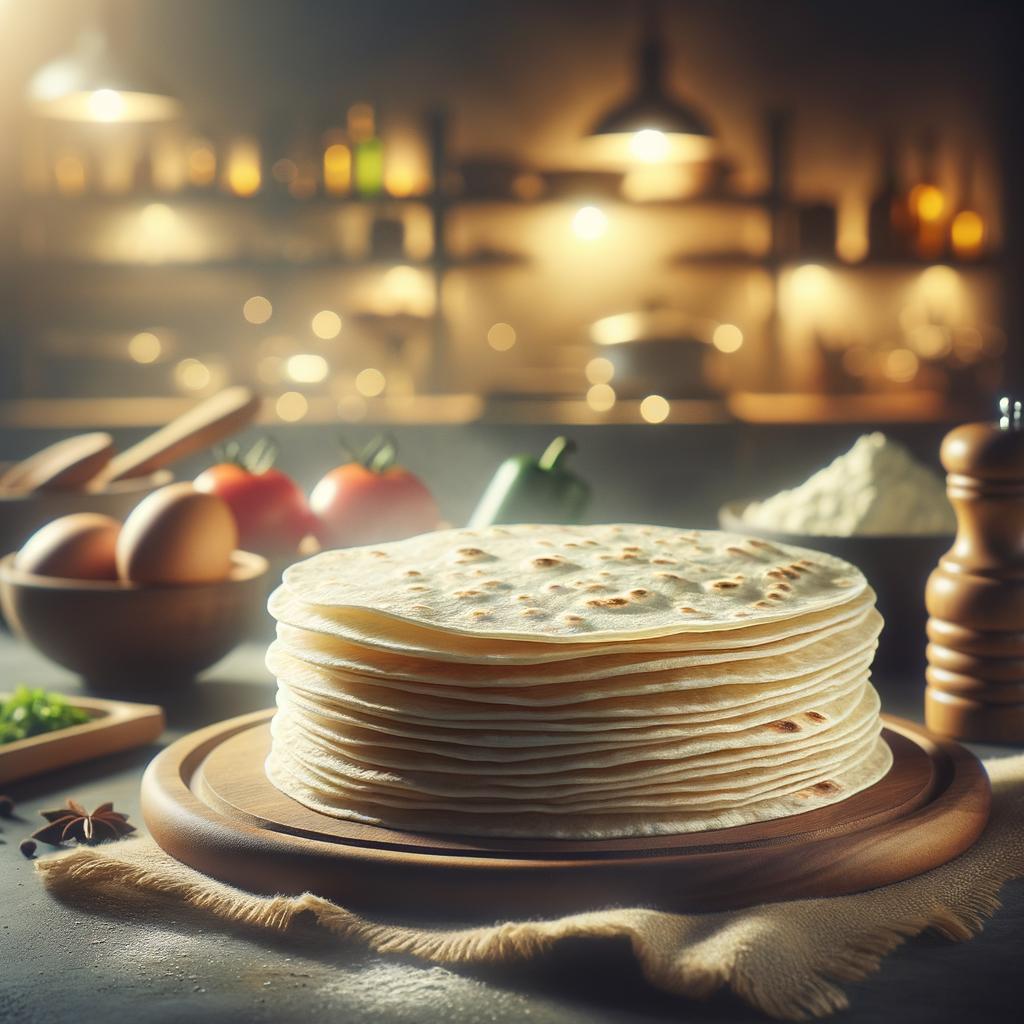Large Flour Tortillas

Description
Large flour tortillas are a staple in many cuisines, particularly in Mexican and Tex-Mex dishes. These circular, flat breads are typically about 8 to 10 inches in diameter, and have a soft, pliable texture that makes them perfect for wrapping or folding. They're pale in color, almost white, with a smooth surface that can sometimes showcase small brown spots from the cooking process. The flavor profile of a flour tortilla is mild and slightly sweet, with a hint of richness from the shortening or lard used in its preparation. What sets these tortillas apart from their corn counterparts is their flexibility and larger size, which allows for a wider variety of uses.
Primary Uses
Flour tortillas are commonly used in a wide array of dishes. They serve as the base for burritos, enchiladas, quesadillas, and wraps, where their subtle flavor complements the ingredients inside rather than overpowering them. They can also be fried to make tostadas, flautas, or chips for nachos. Beyond the culinary world, tortillas have a cultural significance in Mexico, where they are a symbol of home and comfort.
History
The history of the flour tortilla is rooted in the fusion of cultures. While corn tortillas have been a staple in Mesoamerican diets for thousands of years, flour tortillas came into existence after wheat was introduced to the Americas by Spanish settlers. These tortillas quickly became popular in Northern Mexico and the American Southwest, where wheat was easier to grow than corn. Over time, their use spread, and today, they're a beloved part of cuisines around the world. There's a charming folklore in Mexico that says tortillas were a gift from the gods to sustain mankind, and each tortilla carries the warmth of the hands that made it.
Nutritional Information
Large flour tortillas are a good source of energy-providing complex carbohydrates. They also contain some protein, and are low in fat (unless fried). However, they differ from corn tortillas in that they lack the dietary fiber and the rich variety of B-vitamins found in corn. They also tend to be higher in sodium and can contain trans fats, depending on the type of shortening used in their production. Nonetheless, when used as a vehicle for a variety of nutrient-rich fillings like beans, lean meats, and vegetables, flour tortillas can be part of a balanced diet. As with any food, the key is moderation and balance.

